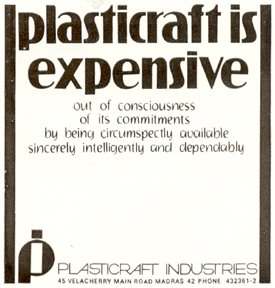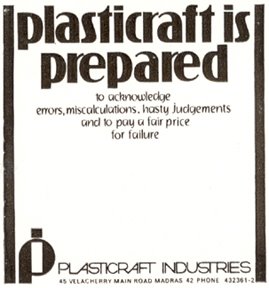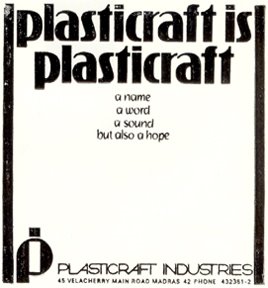I AM CAUGHT IN THE VORTEX OF MY OWN CHURN.
Ever since I began to think and use thought as a tool, to question, I have taken all my decisions, rationally or emotionally, under my own influence, and with my full responsibility. If I have allowed to pervade in me and my attitudes and behaviour some of the conditions which were forced upon me by my environment and the world that my mind explored, that was done by choice, and I own up full responsibility for it.
My will, especially when it comes to dealing with quotidian human situations, has been paralysed for the past 45 years, and every confrontation, when forced upon me by the mere act of living, of being, of breathing and therefore of being, becomes repugnant to the extreme, tiresomely unwelcome, as undeserved. I live in a miasma of paradoxes, where to act becomes an error, as much as not to act.
Arjuna's Kurukshetra had an alibi called Krishna. I divested myself of all alibis in the stupid pursuit of intellectual integrity in my evolution, without compromising fairness to others who chose not to, or plainly, did not evolve, even if it crippled me. I have no Krishna, although, astonishingly, I do not have just one Kurukshetra, but a million.
 Update
Update: Someone made this comment:
Krishna is not an alibi but a resolution to the anxiety of living.
All you need is love. Redundant? The alternative is insanity.I replied:
Krishna is cardinal in the epic Mahabharata, as the conscience of all the characters in the narrative, as they played, or did not play, their various roles, treacherous or benevolent. Krishna's recitation of the Gita provided them all with validity, by justifying every lie, duplicity when necessary, even murder. He provided them all with an alibi, to ease every mind of its need to resolve all the contradictions man has to live with.
I would not recommend to anyone not dying or contemplating suicide, to renounce the ability to believe in conscience, to make adjustments with the difference between thought and action, and to derive respite from alibis.
What I wrote was a lament over my failure, very early in life, to retain this ability. If, therefore, your definition, and your understanding of it, are universally acceptable, then I am insane.
But remember yet again: I was not making recommendations to other people, or preaching to them. I was only describing my situation. You are welcome to your abilities, which you employ in the conduct of your life, as are others. My permission is unquestionably not only not sought, but definitely not required.




